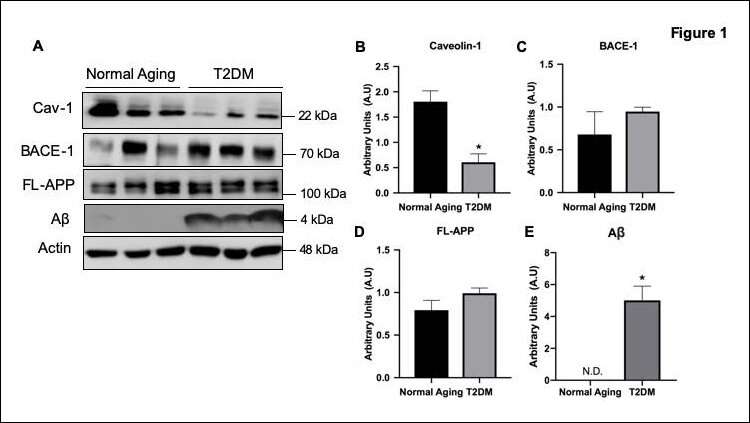Potential target for diabetes-associated Alzheimer's disease

Researchers have identified a protein that may contribute to the progression of Alzheimer's disease pathology in type-2 diabetes, reports a new study of male mice and human brain tissue. The research, published in JNeurosci, could have implications for future drug development.
The cause of sporadic, late onset Alzheimer's disease is unknown. However, type-2-diabetes is associated with an increased Alzheimer's risk, which may provide a clue to its origin.
Bonds et al. examined the relationship between diabetes and Alzheimer's disease and found that a protein called caveolin-1 (Cav-1) is depleted in the temporal lobe of humans with diabetes and in a diabetic mouse model.
Depletion of Cav-1 causes the upregulation of amyloid precursor protein and b-amyloid levels.
Importantly, restoring Cav-1 levels in mice reduced Alzheimer's pathology and improved learning and memory deficits, revealing a potential mechanism responsible for the increased risk of Alzheimer's disease in this population.
More information: Depletion of Caveolin-1 in Type-2 Diabetes Model Induces Alzheimer's disease Pathology Precursors, JNeurosci (2019). DOI: 10.1523/JNEUROSCI.0730-19.2019


















